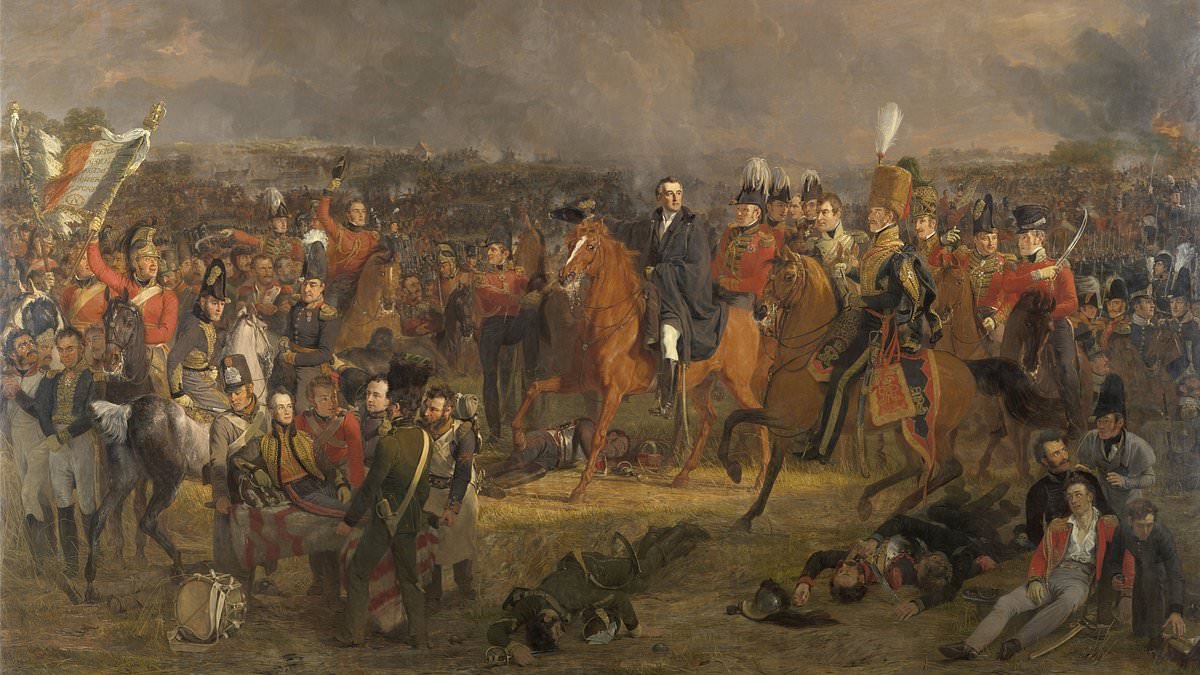Fewer than one in five schools are teaching students about inspirational British victories such as Agincourt, Waterloo and Trafalgar, a study has found.
The report discovered that while almost all pupils are being informed about the Transatlantic Slave Trade and the First World War, children are by and large being left in the dark about other history-changing moments.
Chief among these are the battles of Waterloo and Trafalgar, with only 11 per cent of UK secondary schools teaching the details to their students, despite their vital roles in the history of the British Empire.
The Battle of Trafalgar saw the Royal Navy defeat the French and Spanish fleets in 1805, confirming British supremacy of the seas, while the Battle of Waterloo in 1815 marked the end of the Napoleonic Wars and the rise of British Empire.
Meanwhile only 18 per cent of students are being taught about the Battle of Agincourt in the Hundreds Years’ War, which confirmed Henry V as one of England’s greatest kings.
The report, by Policy Exchange, found that by comparison nearly all schools are teaching children about the Transatlantic Slave Trade, the Abolition of Slavery and the Norman Conquest of England.
The data, which focuses on curriculums taught to Key Stage Three students – those aged between 11 and 14 – shows that schools have ‘diversified’ their syllabus after the Conservative government announced plans to focus on topics of ‘cultural change’ in 2022.
The overhaul was introduced to allow children aged five to 14 to focus on the rich breadth of history, rather than being taught a narrow range of British-centric topics solely in preparation for GCSEs.
However, many have said it’s gone too far, former history teacher and chairman of Campaign for Real Education Chris McGovern said it was ‘clear that the subject has been captured by the Left’.
He warned that history is ‘seen as a vehicle for undermining and destroying British national identity’.
The top five most studied topics are now the Transatlantic Slave Trade (99 per cent), Britain in WW1 (99 per cent), the Norman Conquest (98 per cent), the Abolition of Slavery (96 per cent) and Reformation (95 per cent).
Sitting right at the bottom of the list was the Battles of Trafalgar and Waterloo with only 11 per cent of students studying the topic.
They were closely followed by the Battle of Agincourt (18 per cent), the Boer War (25 per cent) and the Irish potato famine (26 per cent).
The former Secretary of State for Education, Nadhim Zahawi praised the report.
He said: ‘This thorough report from Policy Exchange demonstrates how much progress has been made over the last fifteen years, with increasing numbers of students receiving a knowledge-rich, chronological history education during Key Stage Three.
‘It was heartening to see that core topics such as Magna Carta, the Reformation, the Industrial Revolution, the Slave Trade and its abolition, and Britain’s roles in the World Wars are each taught in over 85% of schools.
‘Though disappointing that inspiring events in English history such as the Battles of Agincourt, Trafalgar and Waterloo appear to have dropped off the curriculum.’
While the report did warn that ‘in too many cases this process has gone too far, leading to the teaching of radical and contested interpretations of the past as fact.’
It also highlighted positive aspects of exposing students to varied studies, including key areas of British history such as the women’s suffrage movement.
The report also found that the topics studied at GCSE and A-Level are too narrow and competitive.
Policy Exchange recommended a new British history survey paper from 1066 to 1989 to replace the current exams sat at GCSE.
In another shocking revelation, it revealed that 53 per cent of people would say their knowledge on British history has been informed by film and television.
And a whopping 15 per cent said they learn about history through social media.
While as little as 12 per cent say their knowledge comes from newspaper and news media outlets.
A spokesperson for the Department of Education said: ‘High and rising standards are at the heart of the government’s mission to break down the barriers to opportunity and give every child the best start.
‘The independent, expert-led Curriculum and Assessment review is considering how to ensure young people have access to a broad and balanced curriculum that ensures young people leave school ready for work and ready for life.’
